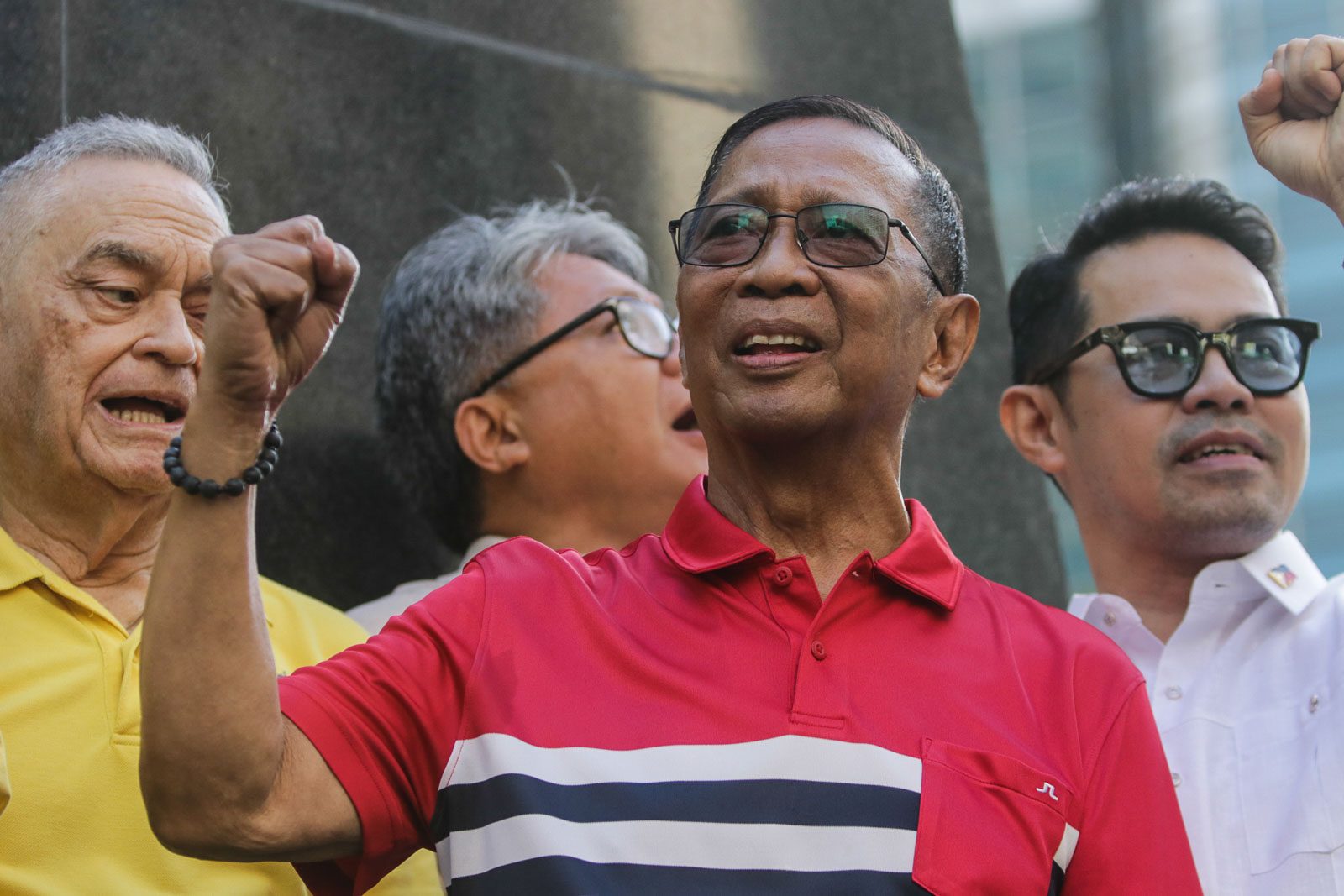SUMMARY
This is AI generated summarization, which may have errors. For context, always refer to the full article.

MANILA, Philippines – Former vice president Jejomar Binay threw his support behind embattled media network ABS-CBN after the National Telecommunications Commission (NTC) ordered its closure.
On Wednesday, May 6, the human rights lawyer expressed hope that ABS-CBN would continue pursuing journalism despite the NTC order to shut down its television and radio operations after its legislative franchise lapsed on Monday, May 4. (READ: ABS-CBN goes off-air after NTC order)
“We may argue on who bears greater responsibility for the closure of ABS-CBN. But we cannot deny that the day the network went off the air 48 years ago was also the day democracy died,” Binay said in a Facebook post.
Binay said Filipinos are in need of credible sources of news as the country continues to deal with the coronavirus pandemic.
“We hope that the men and women of ABS-CBN will continue to pursue the great calling of journalism in the service of the Filipino, especially in this period of uncertainty and anxiety over the COVID-19 pandemic and the creeping erosion of civil liberties, of which the network’s closure is an eloquent example,” He said.
Binay said on February 25 – the 34th anniversary of the 1986 People Power Revolution that toppled the late strongman Ferdinand Marcos – that freedom of the press is a “basic foundation of democracy” and that preventing the renewal of ABS-CBN’s franchise is a threat to press freedom. (READ: IN PHOTOS: Inside the ABS-CBN newsroom during first post-Martial Law shutdown)
The first time ABS-CBN was shut down was when Marcos declared Martial Law on September 22, 1972, a dark chapter in Philippine history marked by corruption and human rights abuses. The network reopened in 1986 after the dictator was ousted following the EDSA People Power Revolution.
Prior to becoming a politician, Binay was a human rights lawyer who was actively involved in the anti-Marcos movement.
The Binay family has had a complicated relationship with ABS-CBN over the years, specifically when the family patriarch and a couple of other members of the family faced multiple corruption allegations.
His daughter, Senator Nancy Binay, had earlier said ABS-CBN treated her family unfairly at the height of the corruption allegations but like her father, she also backed ABS-CBN’s franchise renewal to uphold press freedom. – Rappler.com
Add a comment
How does this make you feel?
There are no comments yet. Add your comment to start the conversation.